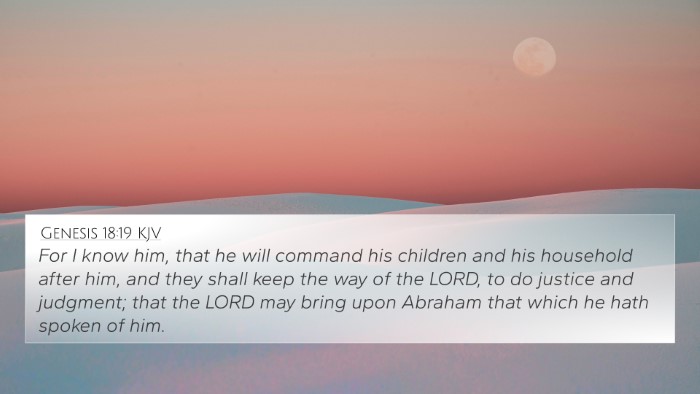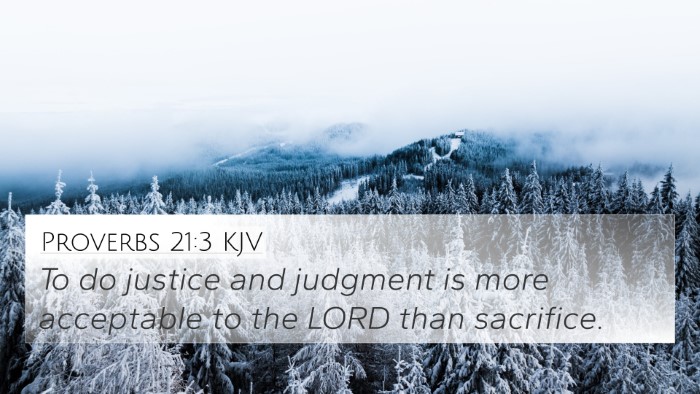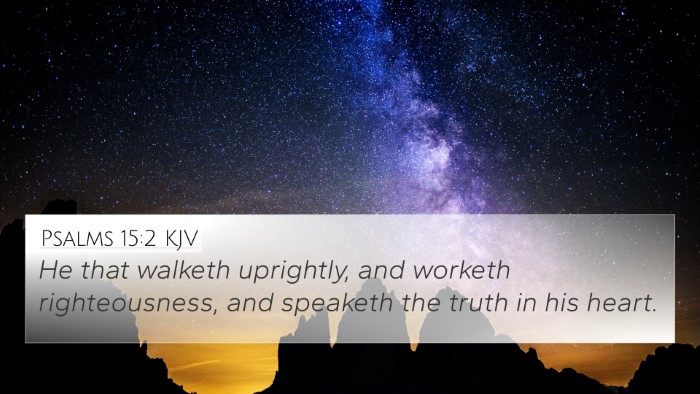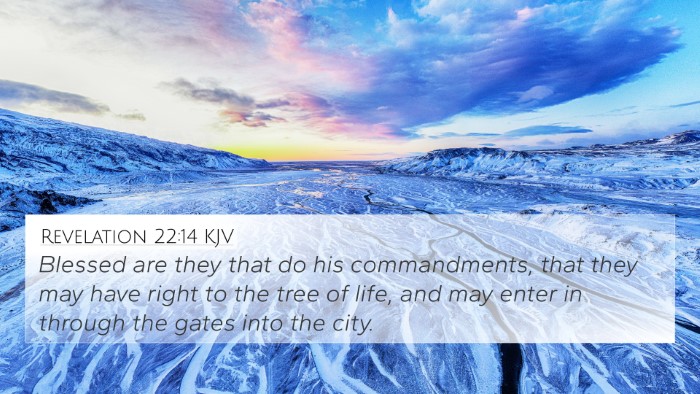Ezekiel 18:5 - Understanding Its Meaning
Ezekiel 18:5 states, "But if a man is just and does what is lawful and right." This prophetic verse underscores the character of a righteous individual according to God's standards and serves as a basis for understanding accountability in faith and conduct.
Contextual Background
The Book of Ezekiel, authored by the prophet Ezekiel during the Babylonian exile, addresses the themes of judgment and restoration. In Chapter 18, the prophet emphasizes individual responsibility for sin, contrasting the principle of collective punishment prevalent in the culture of that time.
Key Insights from Commentaries
-
Matthew Henry:
Henry highlights that this verse sets forth a standard for righteousness. God requires not merely outward compliance with the law, but an inner disposition to do what is just and right. This indicates the necessity for personal faithfulness and integrity, rather than relying on the righteousness of ancestors.
-
Albert Barnes:
Barnes notes that the phrase "man is just" underlines the importance of a righteous life. A person who is just here is one who exercises justice, implying a character that engages in fair and honest dealings. This aligns with the broader Biblical theme that righteousness and justice are foundational to a godly life.
-
Adam Clarke:
Clarke emphasizes the necessity of practical righteousness, interpreting "does what is lawful and right" as active obedience to God's commands. He indicates that this verse also speaks to the essence of true spirituality that manifests in daily actions and social ethics.
Lessons from Ezekiel 18:5
This verse invites readers to reflect on their personal lives and the moral fabric of their communities. It stresses the importance of individual conduct and being accountable for one's actions in the sight of God. The emphasis on 'just' and 'lawful' points toward a life committed to ethical and moral uprightness.
Cross-References
- Deuteronomy 16:20 - "Justice, and only justice, you shall follow, that you may live and inherit the land that the Lord your God is giving you."
- Proverbs 21:3 - "To do righteousness and justice is more acceptable to the Lord than sacrifice."
- Isaiah 33:15 - "He who walks righteously and speaks uprightly, who despises the gain of oppressions, who shakes his hands, lest they hold a bribe, who stops his ears from hearing of bloodshed and shuts his eyes from seeing evil."
- Micah 6:8 - "He has shown you, O man, what is good; and what does the Lord require of you but to do justly, to love mercy, and to walk humbly with your God?"
- Romans 2:6-8 - "He will repay each person according to what they have done: to those who by persistence in doing good seek glory, honor and immortality, he will give eternal life."
- James 1:22 - "But be doers of the word, and not hearers only, deceiving yourselves."
- Galatians 6:7-8 - "Do not be deceived: God cannot be mocked. A man reaps what he sows."
Relating This Verse to Other Scriptural Themes
Ezekiel 18:5 aligns with numerous Biblical themes, such as personal responsibility, justice, and righteousness. The connections underscore a recurring message in Scripture that emphasizes the character of God and His expectations from His followers.
Practical Application
The message of Ezekiel 18:5 can be applied in various facets of life, urging believers to cultivate a character that reflects justice and righteousness. It challenges individuals to assess their actions and align them with the teachings of Scripture, encouraging a lifestyle that embodies the principles outlined throughout the Bible.
Conclusion
The examination of Ezekiel 18:5 provides a profound understanding of individual righteousness in the context of one's relationship with God. By considering cross-references and insights from established commentaries, believers are equipped to deepen their understanding of Biblical justice and how to manifest it in daily living.
Exploring Bible Verse Connections
For those interested in further study, exploring connections between related Bible verses can reveal a wealth of understanding about God's character and the expectations for His people. Utilizing tools for Bible cross-referencing or a Bible concordance can enrich one's study and allow for deeper insights into how various scriptures interact with each other.

















